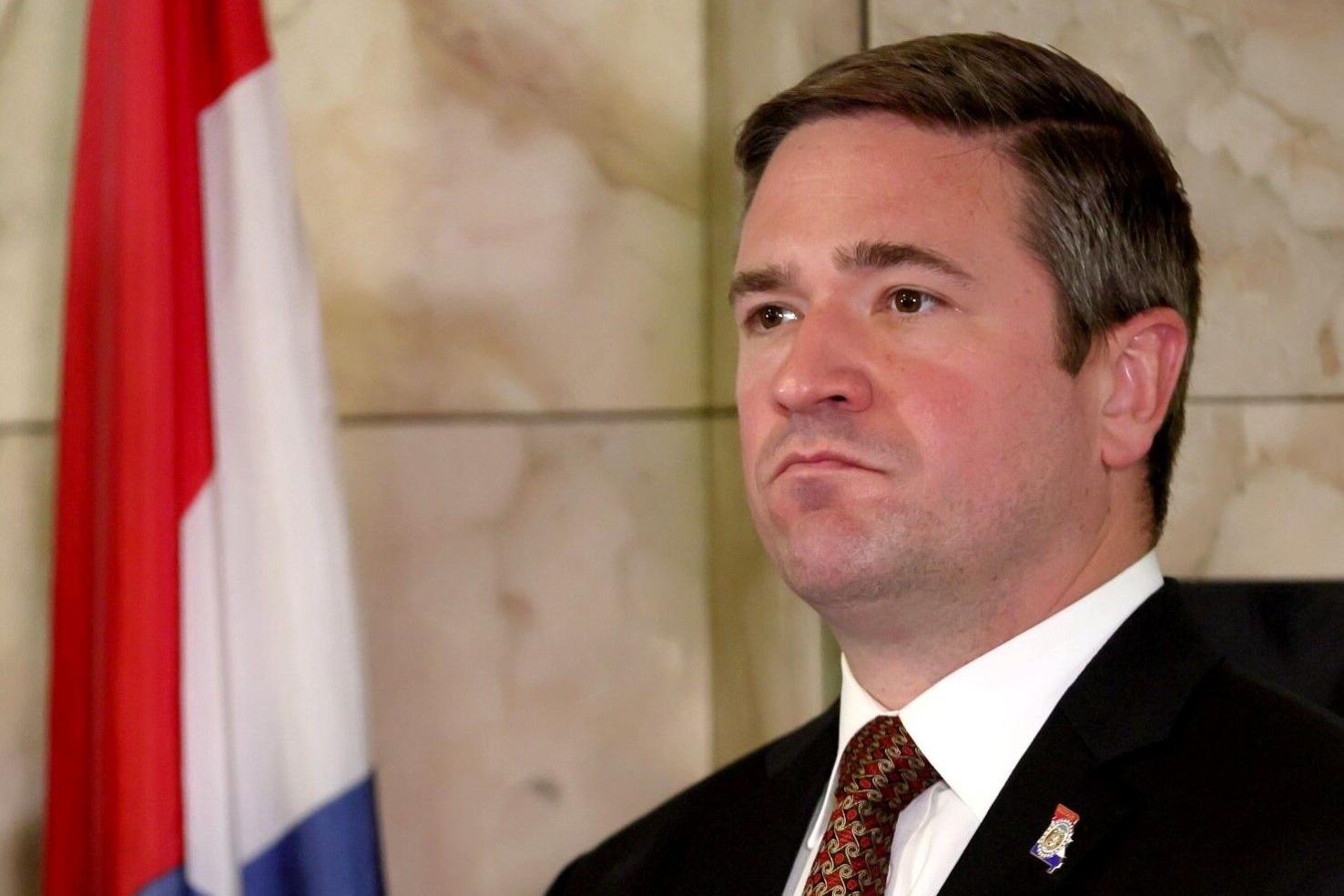JEFFERSON CITY — As lawyers turn to a state appeals court for a decision on the future of unregulated slot machines in Missouri, the ongoing expansion of the industry can be seen up close in gas stations and convenience stores across St. Louis.

A man sits in front of a row of unregulated slot machines at a gas station in southern Missouri in July 2023.
Since 2019, the number of the potentially illegal gambling terminals registered in the city has ballooned fivefold, from about 50 machines to more than 250.
According to documents obtained through the Sunshine Law, St. Louis License Collector Mavis Thompson awarded the amusement decals to Wildwood-based Torch Electronics in July at a rate of $10 per sticker.
The license collector’s office issues permits for a wide range of businesses in St. Louis. One category includes coin-operated amusement devices such as pool tables, jukeboxes and, in the case of Torch’s machines, the gaming terminals.
People are also reading…
The company, which earlier sued the state in an attempt to block state and local prosecution of their business model, also paid a $200 license fee in order to conduct business within the city borders. Torch, which has hired a powerful lobbying firm to fight legislative attempts to ban the machines, is listed as a provider of “electrical services,” the records show.
Industry watchers like officials at the Missouri Lottery say the expansion of the games has been alarming.

Two Torch Electronics machines, seen here on Nov. 8, 2023, at a Florissant liquor store.
“Everyone has been surprised by the spread of these machines, both in Missouri and around the country,” Lottery spokeswoman Wendy Baker said in an email.
The terminals, which have become a common fixture in retail stores across the state, work like slot machines. A player inserts money, selects a game and decides how much to wager. Players who win money can cash out and get paid by the store cashier.
The Missouri Gaming Commission, which regulates the state’s 13 licensed casinos, has deemed machines being distributed by Torch and other companies as “gambling devices,” which are prohibited outside the casinos.
The Lottery also is monitoring the spread of the machines, saying their presence could draw people away from buying scratch-off tickets and other Lottery products.
And the association representing Missouri’s 13 gambling casinos also says the machines could be siphoning players from their establishments.
Before leaving his post as a state lawmaker last year, St. Louis Alderman Rasheen Aldridge introduced legislation aimed at addressing the machines.
His proposal, which didn’t advance, would have stripped business owners of their liquor and tobacco sales licenses and permanently bar owners from participating in a legalized video gambling program if one is implemented in the state.
He said he may introduce a nonbinding resolution at City Hall designed to send a message to operators that the machines are not welcome within the city.
Aldridge, who represents downtown and the near north side of St. Louis, said he believes a stricter ban would have to be put in place at the state level.
“Those things just need to be left in casinos. I think they are just preying on the poor,” Aldridge said. “It’s an abuse on low-income people.”
Torch argues its machines “fall outside the definition of a ‘gambling device’ under Missouri law and are entirely legal.”
In October, a Cole County judge dismissed Torch’s 2021 lawsuit that sought to block the Missouri State Highway Patrol from investigating whether the company’s machines are illegal.
But the Missouri Gaming Association, which represents the casinos, is asking a state appeals court for another chance to prove that unregulated slot machines in gas stations, bars and truck stops represent illegal competition.
Chuck Hatfield, an attorney for Torch, also has said the decision would be appealed. Torch wants a decision that declares the machines are legal and that playing them does not meet the legal definition of gambling.
Forbes reports gambling can be a potentially harmful and severe addiction with the ability to negatively impact your personal and professional life.





